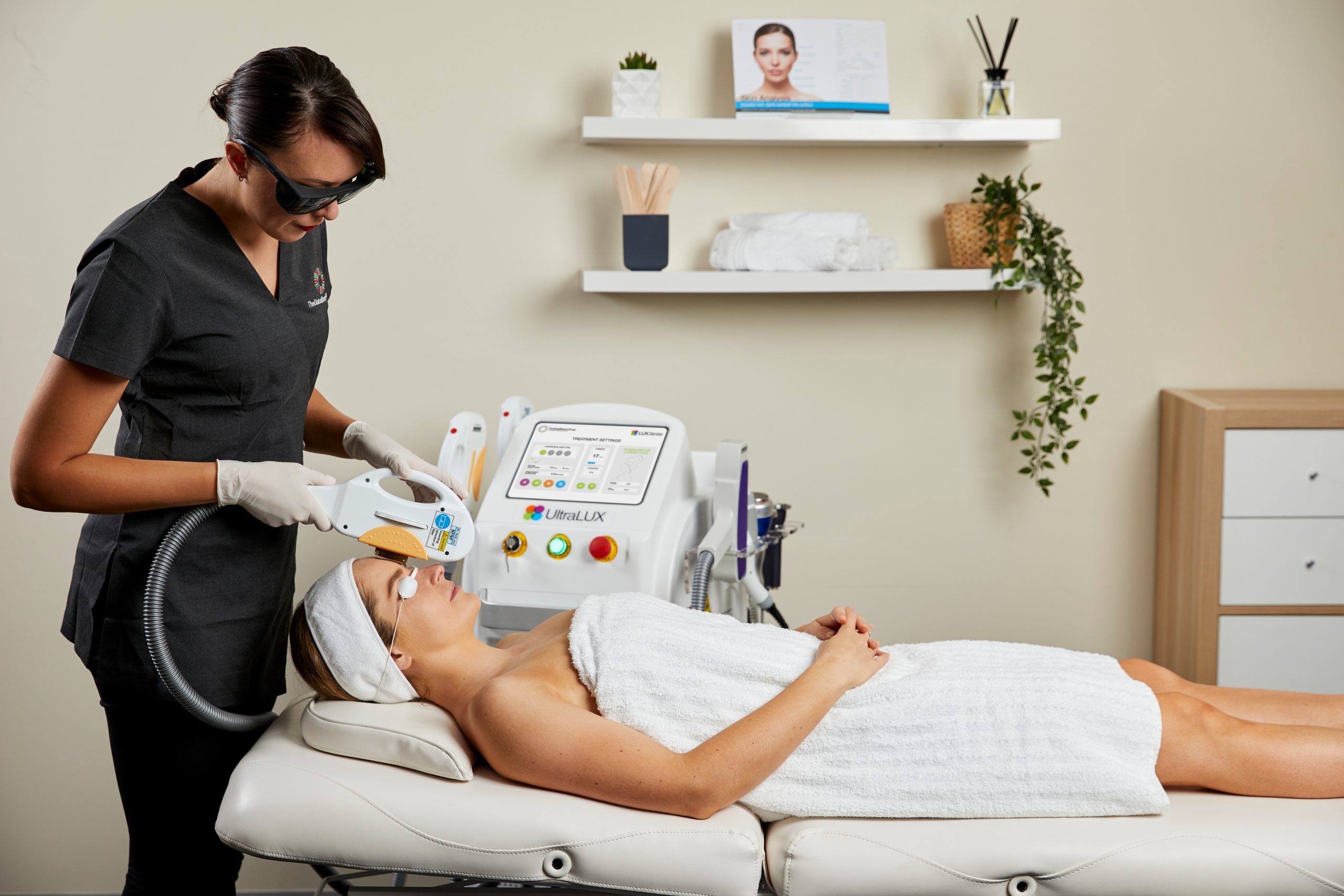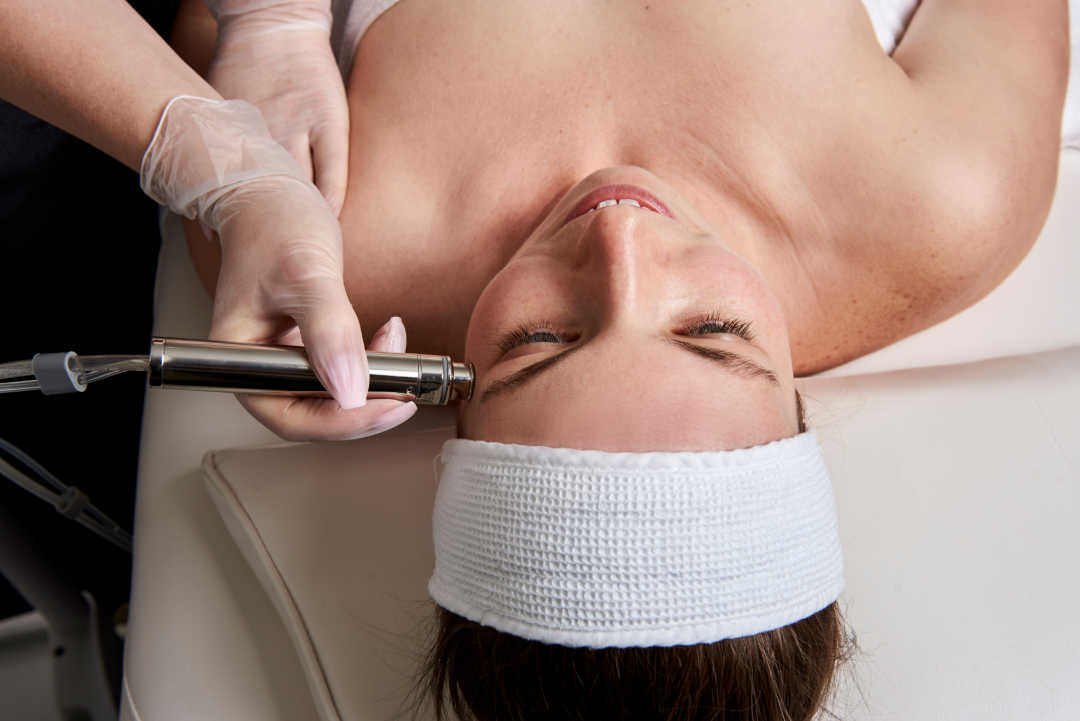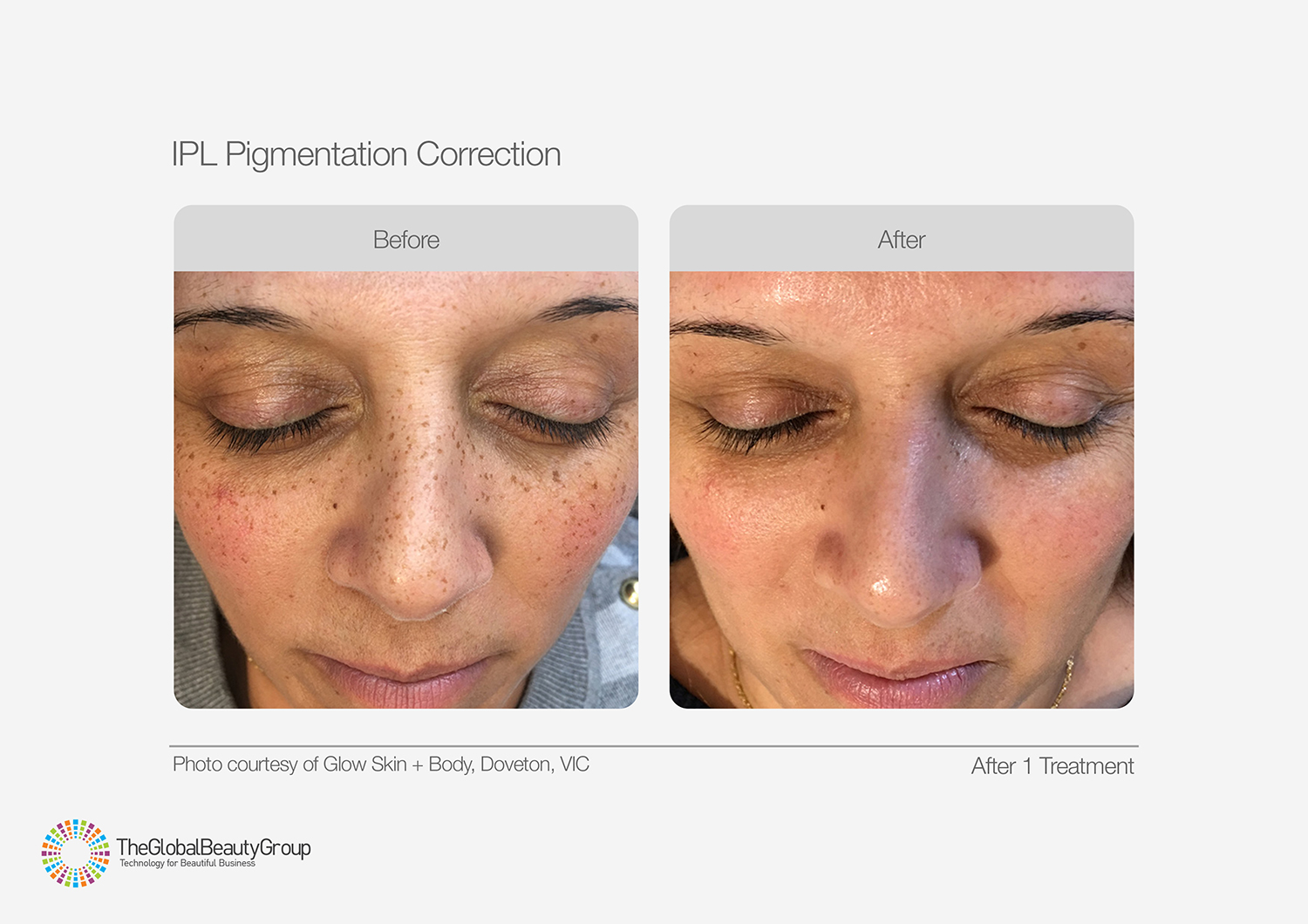
If you live in Australia, we all have varying degrees of sun damaged skin – it’s a given. Whether you grew up hearing “a tan looks healthy”, got burnt at the beach a few too many times, or even indulged in the odd tanning-bed moment, unfortunately, it’s the country’s #1 skin concern.
Sun damaged skin and accelerated ageing
We can’t talk about sun damage without discussing how it effects our skin. Did you know that 80% of visible ageing is linked directly to UV exposure or sun-damage, and only 10% is related to our genetics? And, given that our collagen starts breaking down in less than 1/10th of the time it takes to get a sunburn, that means the collagen is affected WAY before you start to notice any pinkness or obvious effects from being exposed to the sun’s rays.
For those that are familiar with UVB and UVA rays, you will know that UVB burns skin without protection (it’s also strongest when hotter, so think summer) but it is actually UVA that we need to worry about the most when it comes to premature ageing. UVA rays are primarily responsible for accelerated ageing within our skin.
UVA rays are strong ALL year round (in fact they have EXACTLY the same intensity regardless of how hot it is or how much the sun is shining) so it’ essential to SLIP SLOP SLAP everyday, not just sunny summer days or beach days. UVA rays penetrate deep into the dermis, damaging the skin at several layers and affecting the collagen and elastin fibres, which leads to wrinkles and sun-induced ageing.

Protect your skin at all costs!
It is a common misconception that SPF, especially a higher percentage, will completely block out the sun’s rays and stop you from getting sun damaged skin altogether. In fact, sunscreen works by adding to your natural burn time. So, for the strength of the Aussie sun, most professionals will recommend a 30+, with a 50+ being ideal. Further, don’t make the mistake of thinking that the sunscreen component in your makeup or day cream will cover you adequately. Regardless of what’s in those products, you do need to incorporate a dedicated sunscreen into your daily routine.
For anyone who thought it’s not possible to damage your skin during winter, or that you don’t need to apply sunscreen on a cloudy day – think again. In fact, we SHOULD be protecting our skin all year round with at least a 30+ sunscreen – that’s any time we leave the house and are likely to be outside. This is especially necessary thanks to the particularly harsh sun of Australia.
However, prevention really is the best cure – so limit your sun exposure as much as you can, especially during summer.
What helps sun damaged skin?

Treating sun damaged skin
Ok so we get the message loud and clear that we need to protect our skin – but what about treating existing sun damaged skin? We all have it to some degree, whether it be sunspots, uneven skin tone or hyperpigmentation. In fact, according to a 2019 consumer study, almost 60% of Australians suffer from some form of sun damage – in major part due to the harsh climate.
See a skin therapist
There are many ways to treat skin that has been damaged by the sun, otherwise known as photo ageing. A clinician might recommend any number of treatments, depending on your skin’s level of damage and what you what to address.

Microdermabrasion is fantastic for deeply exfoliating and eliminating surface-damage. This treatment removes the top surface layer of the skin to reveal a fresh, brighter complexion underneath. Clients often see results from their very first treatment, making it an extremely popular choice for rejuvenating the skin and reducing the appearance of mild sun-damage.

Addressing sun-damage with IPL technology
IPL machines are incredibly effective at treating ageing and sun-damaged skin. IPL stands for Intense Pulsed Light and works using a targeted wavelength of light that is directed towards the melanin in the dermis, shattering the pigment that’s accumulated due to sun-damage. IPL is incredibly effective on pigmentation due to its ability to target not only obvious surface damage but underlying unevenness within the dermis. During the treatment, strong pulses of filtered light work to improve skin texture and tone as well as stimulating the fibroblast cells within the skin to encourage collagen production. The end result? A smoother, more uniform complexion.
A series of sessions is recommended, spaced a few weeks apart to get the best results. Freckles, sunspots, and age spots can all be successfully treated, leaving skin looking lighter, more even and pigment-free.
Get your skincare sorted
Finally, aside from protecting your skin, investing in some targeted skincare that is designed to treat sun-damage is a smart idea. Products such as niacinamide, AHA’s and vitamin C are all excellent at treating existing damage. They can also work to slow the production of melanin and improve barrier function as well as preventing future damage.
Be especially careful when using any products designed to lighten your skin as they can make your skin even more sensitive to the sun. Consulting with a skin therapist or treatment-provider is ideal as they can help put together a plan that includes targeted treatments and a skincare plan to work alongside one another.
We all love getting some vitamin D – and within reason, limited sun-exposure is great for us. However, we must keep in mind that over time, sun-exposure will age you. It is incredibly bad for the long-term health of your skin and with the Aussie sun’s UV rays being especially potent, it’s more important than ever to be vigilant and protect your skin.
MORE – 7 Superfood Skincare Ingredients That Really Work
MORE – 5 Ways To Go The Extra Mile In Your Skincare Routine

1 Comment
In my opinion – as a naturopath that specialises in skin care – sun damage is the number 1 reason for premature ageing of skin. It’s much easier to prevent the damage Vs working with it once it’s occurred. Slip slop slap has never been more resonate 🙂